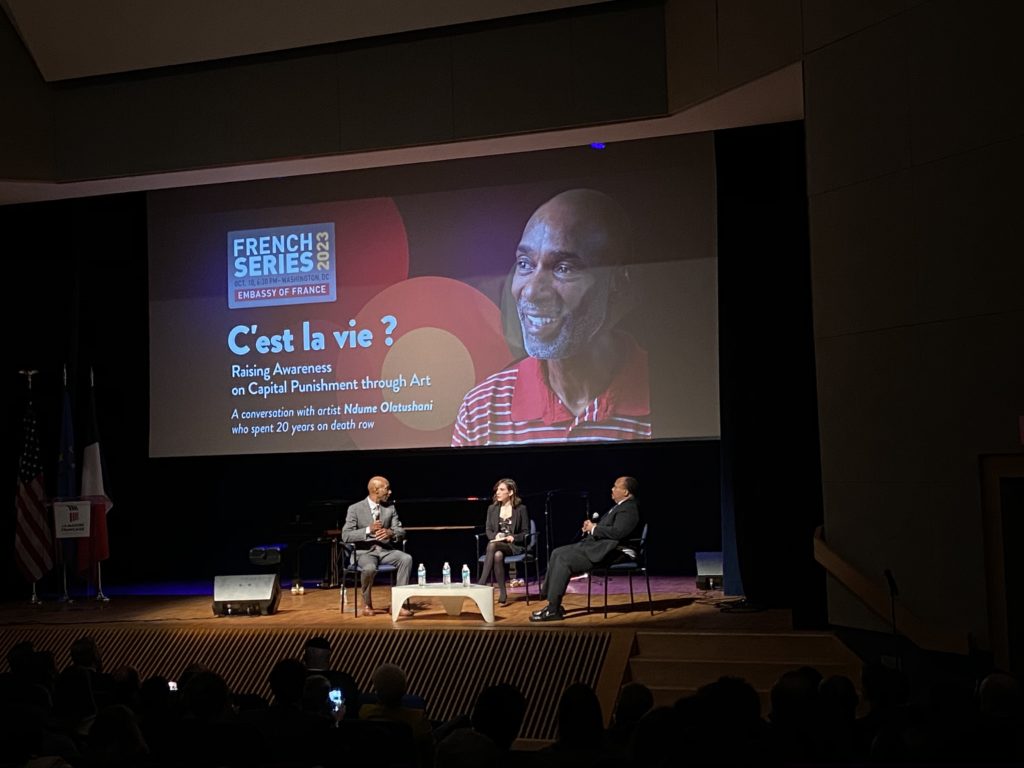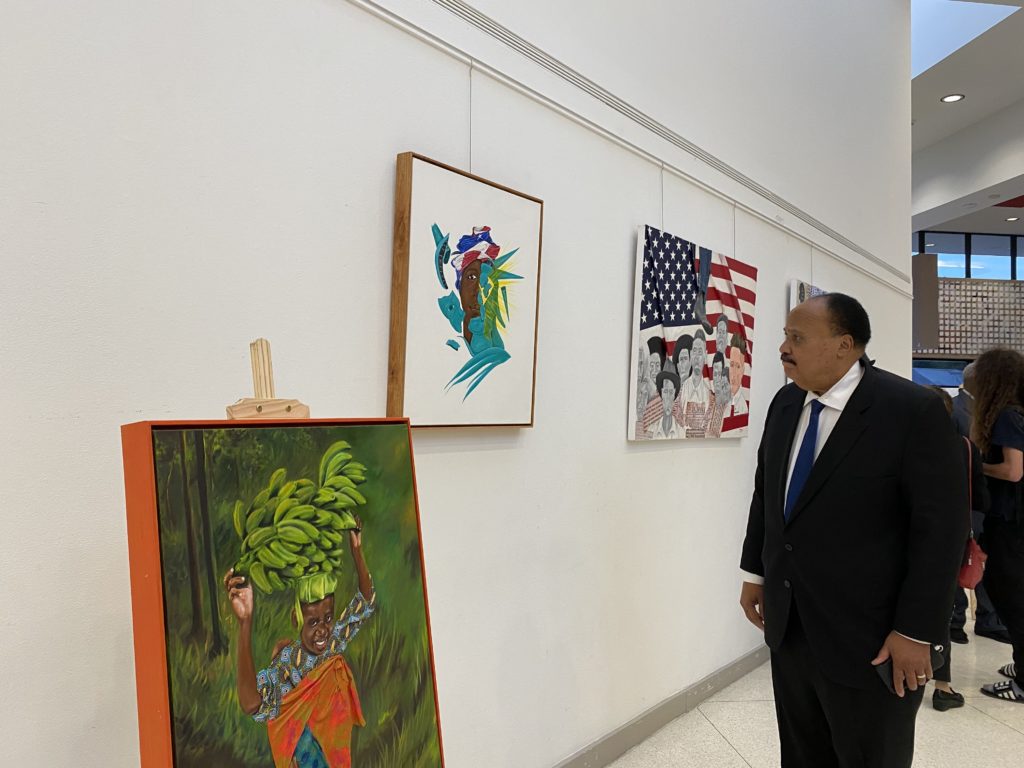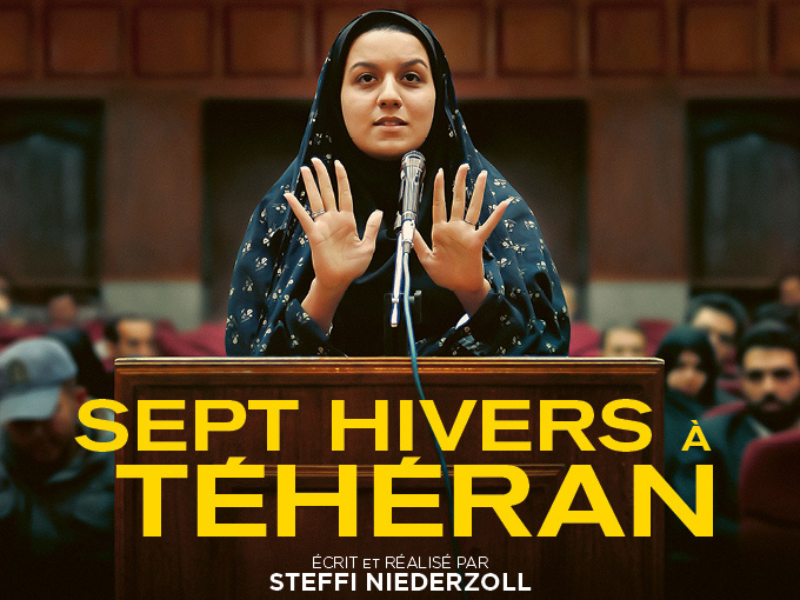France
School interventions
This month, ECPM visited 3 schools around Paris for a series of events organised to mark the 21st World Day against the Death Penalty. 153 young people, aged 14-18, learned about the history of the abolition of the death penalty in France and its application around the world today.
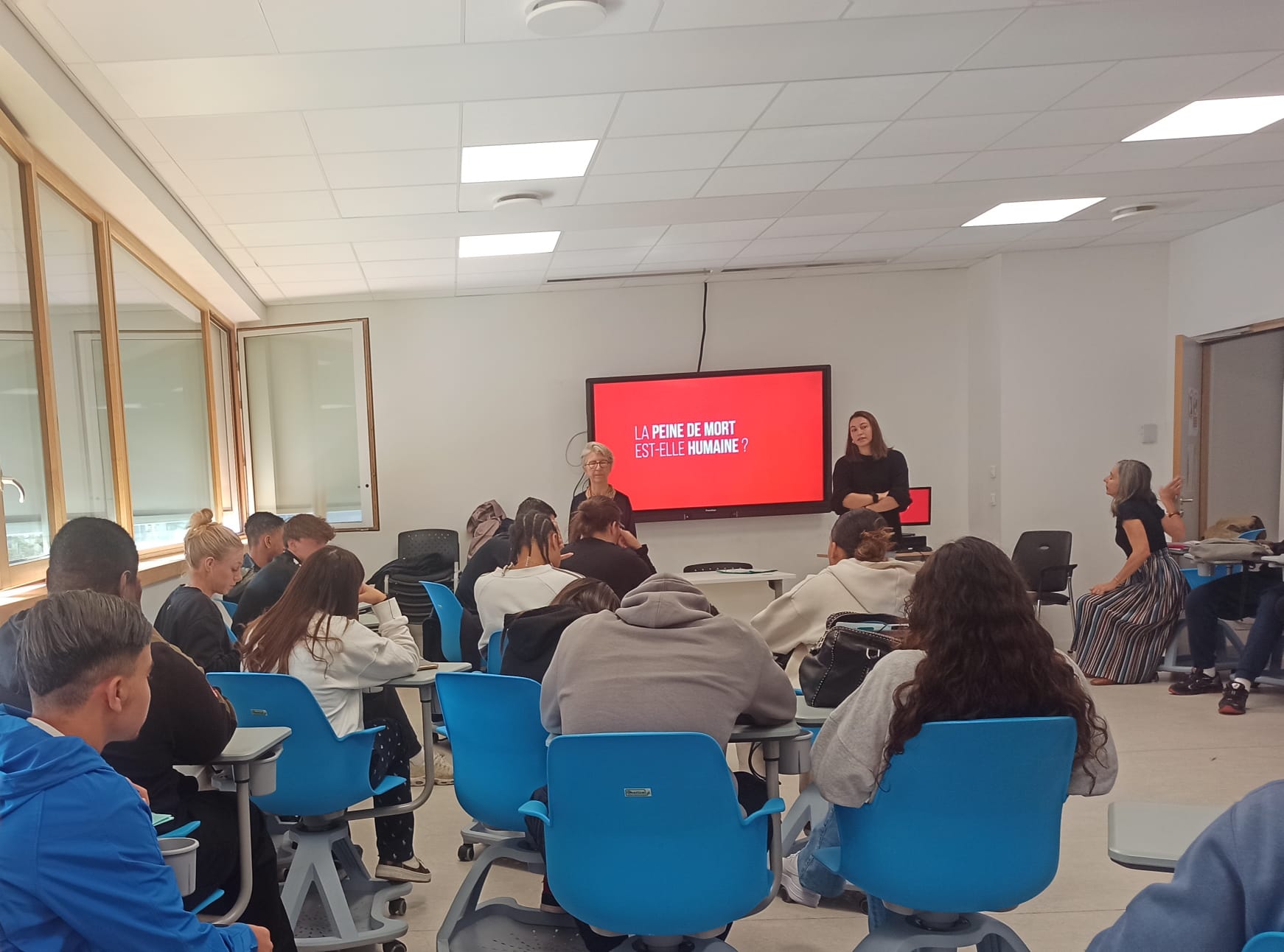
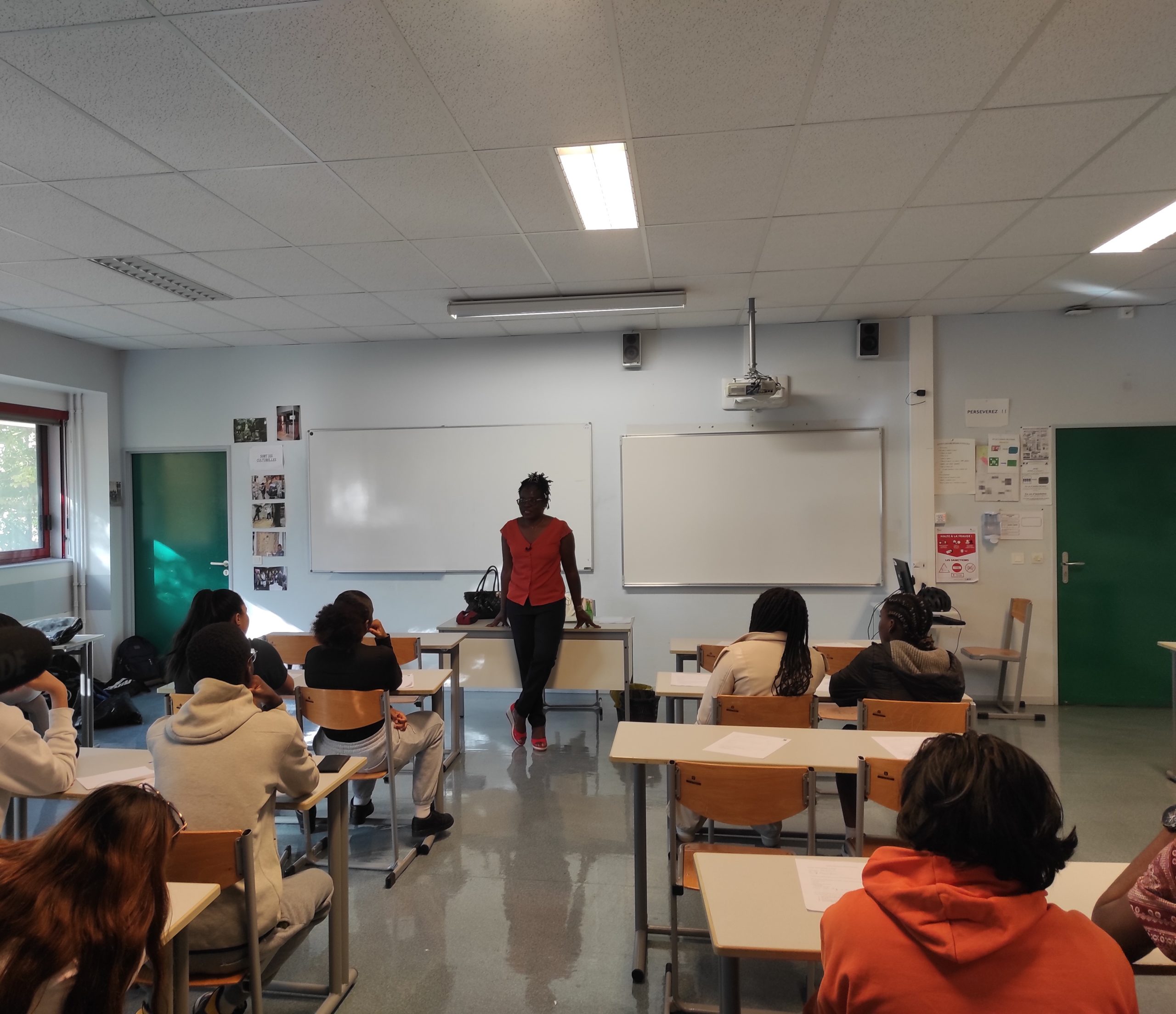
Our teams were accompanied by Sandrine Dacga Djatche, a lawyer in France, Nigeria, and Cameroon. She tirelessly fights for the abolition of the death penalty and pro bono defends those sentenced to death in Cameroon, her country of origin. She raised awareness on the horrendous detention conditions and unfair trials reserved for Cameroonian death row prisoners among French youth and recounted the infernal experiences of those she defends and the inevitable spreading of suffering of their relatives.
Although Cameroon has observed a moratorium on executions since 1997, the death penalty remains a reality in the country, where at least 135 people were reportedly under a death sentence at the end of 2022 (authorities do not regularly disclose figures). In response to this, “Every voice counts,” recalled Sandrine Dacga Djatche, “no one is insignificant.”
A conference initiated by the youth
On Tuesday, October 10, 2023, students members of the Évry Publicistes association who had participated in the advocacy and awareness training workshop for the abolition of the death penalty on June 2 and 3 at the Council of Europe, organised a conference entitled ‘The Death Penalty through the Prism of Domestic and International Law’ at the Faculty of Law of Evry-Paris Saclay, supported by ECPM. The event provided an opportunity for the 100 attending students to demonstrate their interest in the universal abolition of the death penalty.
M. Nicolas Castel, Ms. Sandrine Dacga Djatche, and Claire Brice-Delajoux, a lecturer in public law at the University of Evry-Paris Saclay, spoke about the situation of individuals threatened with extradition to a state that practices the death penalty, the practice of “last-chance” lawyers in Cameroon, and the strengths and weaknesses of international law in the fight for universal abolition.
“The death penalty is not over, neither in France nor elsewhere. The greatest danger we can expose ourselves to in France would be to believe it is.”
Mr Nicolas Castel
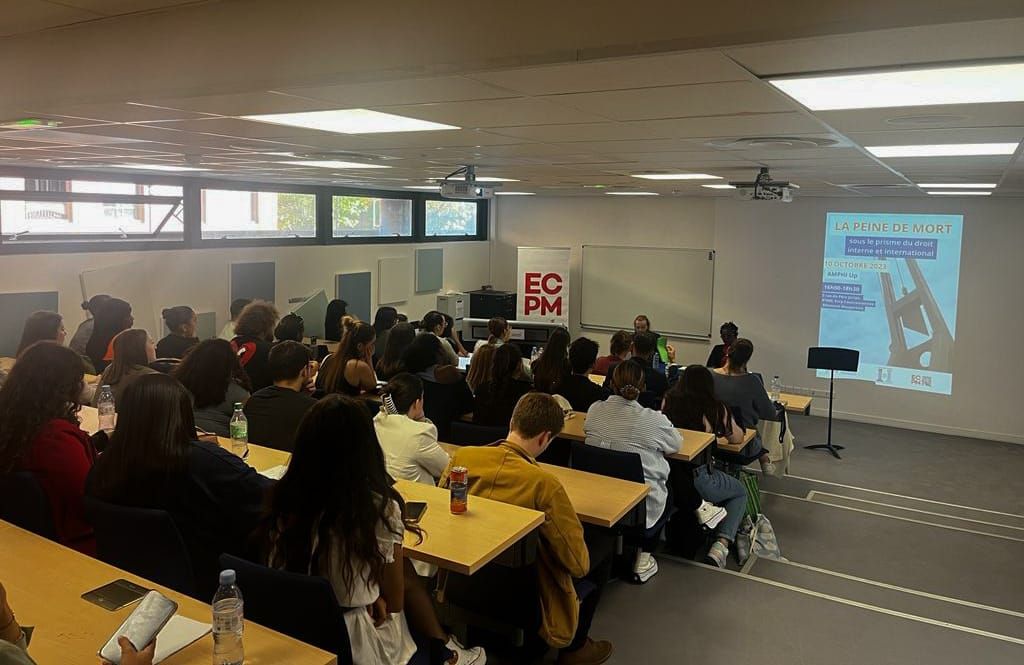
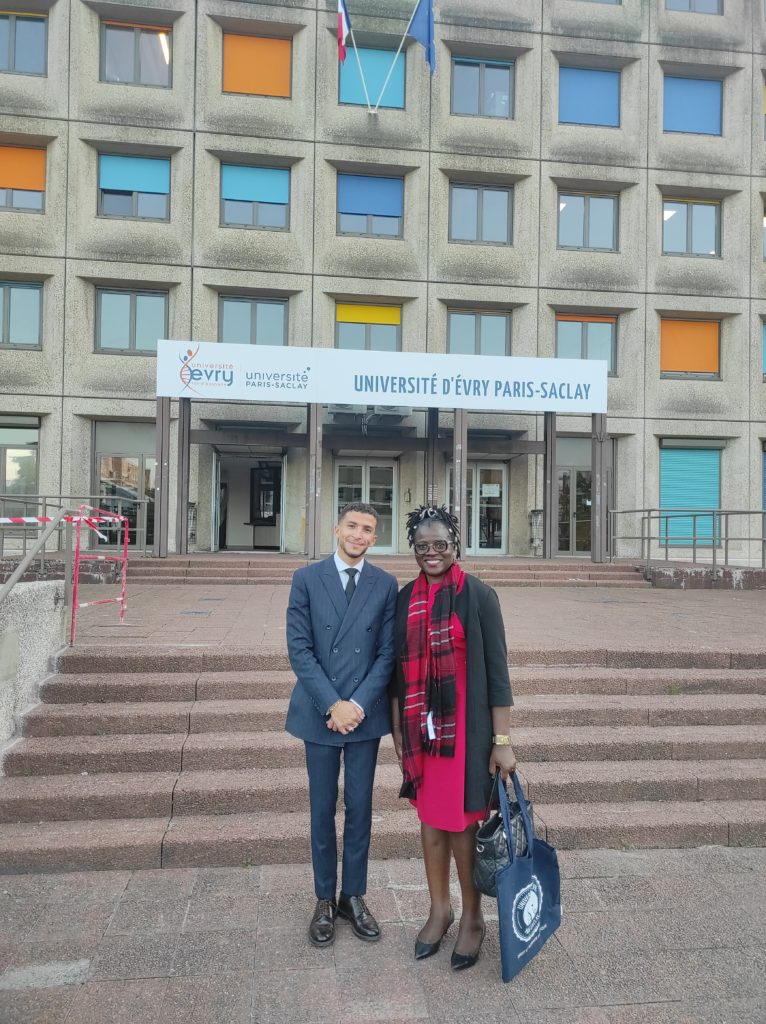
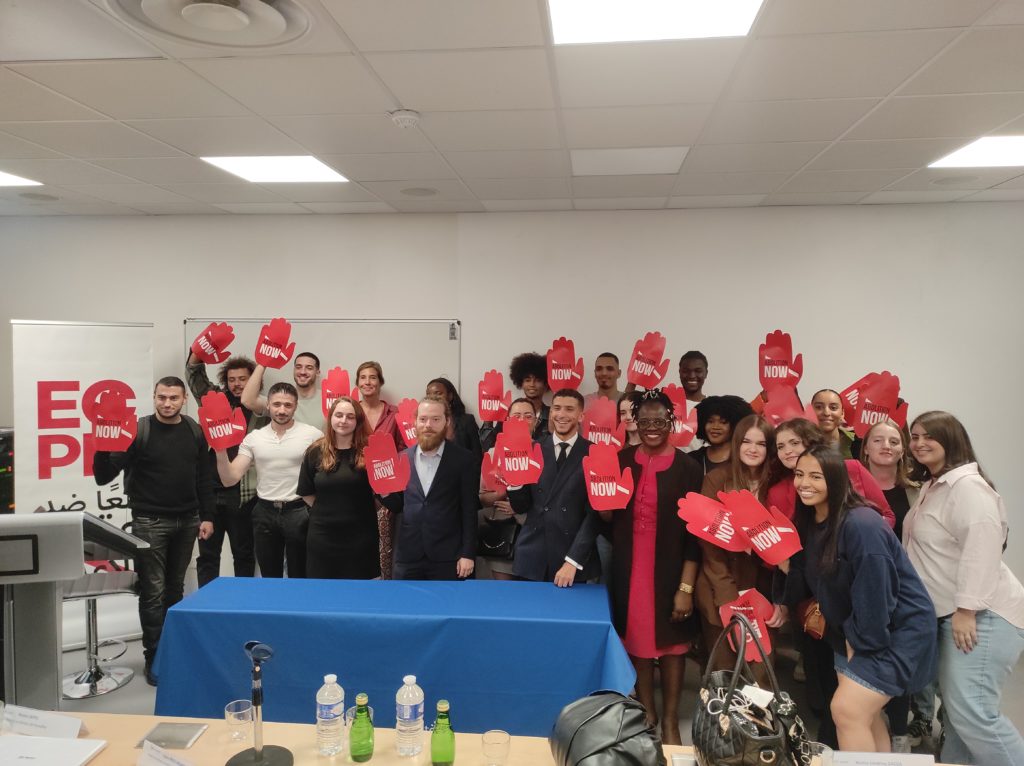
Morocco
Press conference at the National Human Rights Council (CNDH)
On Thursday, October 12, a press conference was held at the National Human Rights Council headquarters in Rabat. Raphaël Chenuil-Hazan, director of ECPM, emphasized that the death penalty is tantamount to torture. After 30 years of moratorium on executions in Morocco, he called on His Majesty Mohammed VI to take the step towards abolition, thus making Morocco the first country in the Maghreb to abolish the death penalty in its laws.
Amina Bouayach, President of the National Human Rights Council, invited Morocco to vote in favor of a universal moratorium in New York at the upcoming vote in 2024 to formalize its commitment to abolition. Malika Ghabbar, representing the Network of Teachers Against the Death Penalty, addressed her peers: “Teachers/educators can play a crucial role in the process of abolishing the death penalty in Morocco. They can raise awareness among the youth. The network of teachers fights daily alongside young people in schools to provide an alternative to the idea of revenge and a reasonable voice to deeply reflect the youth.”
Finally, the presence of Nadia Benhida, a member of the Network of Moroccan Entrepreneurs Against the Death Penalty, reaffirmed the influential power of Moroccan economic actors, demonstrating that developing an ethos of responsibility and conviction allows the values of corporate social responsibility to be brought to the forefront. “The Moroccan entrepreneur is a citizen, and their civic engagement is a clear proof of it. They are thus committed to the abolition of the death penalty and to human dignity,” she added.
- Press: Telquel Maroc ; Hespress
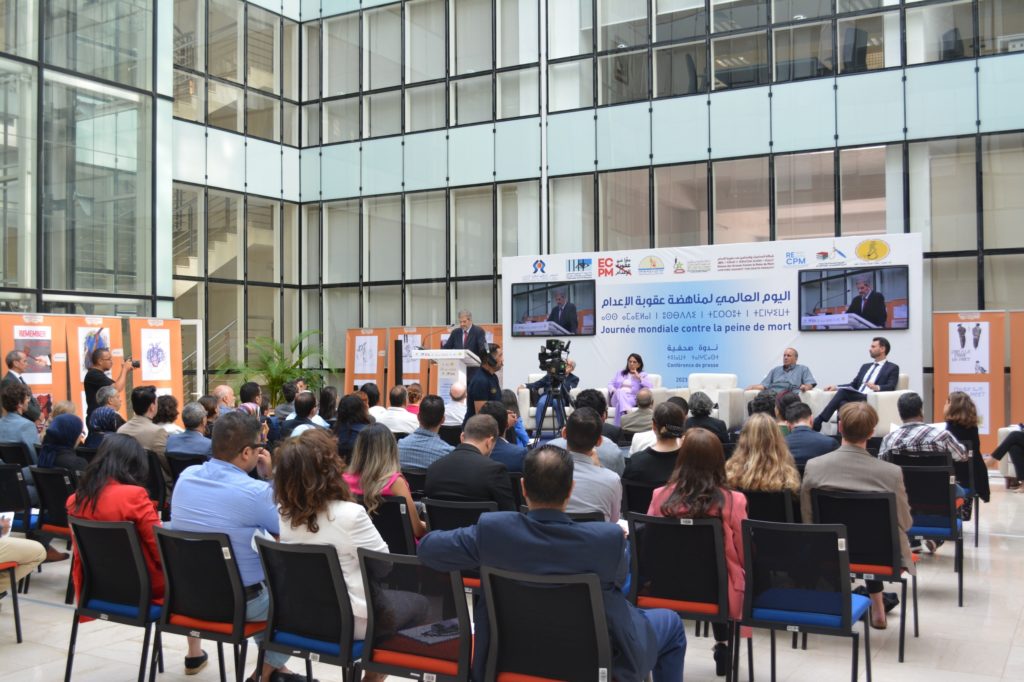
The abolitionist youth in the background
Throughout the conference, the participants were able to admire the 50 selected posters from the latest edition of the Draw Me the Abolition competition in the lobby of the National Human Rights Council (CNDH), which sparked numerous encouraging reactions and opened the discussion on the next generation of abolitionists.
Sit-In in Rabat
True to their annual appointment, the Moroccan Coalition Against the Death Penalty and the Moroccan Observatory of Prisons organized a symbolic sit-in on October 10. Around thirty activists and journalists gathered on the forecourt of the parliament in Rabat to demand the abolition of the death penalty.
Film screening: 7 Winters in Tehran, Rabat
After supporting its distribution in France, ECPM and the OMP co-organized a screening of the documentary film “Seven Winters in Tehran” in Rabat. The event was organized in partnership with the Association of Mediterranean Meetings for Cinema and Human Rights. Saida Idrissi, a gender and women’s rights expert, and Abdallah Mouseddad, vice president of the Moroccan Coalition Against the Death Penalty, introduced the session. They notably presented the themes of the film, which illustrate how the death penalty creates and spreads violence, affecting new victims such as the families of the condemned and the victims, as well as lawyers. The film also highlights the courageous struggle of a woman for human rights.
The hundred or so attendees present for the occasion were also able to admire, alongside the film, the 50 winning posters from the 6th Draw Me the Abolition contest, exhibited within the spaces of the Renaissance cinema.
Tunisia
Press conference at the headquarters of the National Syndicate of Journalists in Tunis
The CTCPM invited the families of the death row convicts in the Ain Skhouna – Kebeli case, who were present with their lawyer and had the opportunity to speak and give interviews. There was extensive coverage in the media, with nearly 25 articles in the online press, radio interviews, and coverage on the 8 p.m. news of National TV Channel 1.
- Press: L’Economiste maghrébin ; Business news ; Aawsat
On the sidelines of the press conference, the CTCPM marked this World Day Against the Death Penalty by signing a partnership and cooperation protocol with the National Instance for the Prevention of Torture, the only body with the prerogative to visit prisons. This collaboration marks an important step for the abolitionist movement in Tunisia, as it will allow the CTCPM to gather information on the detention conditions of death row convicts and provides for the implementation of training and the production of documentation on the prevention of torture and the fight against the death penalty.
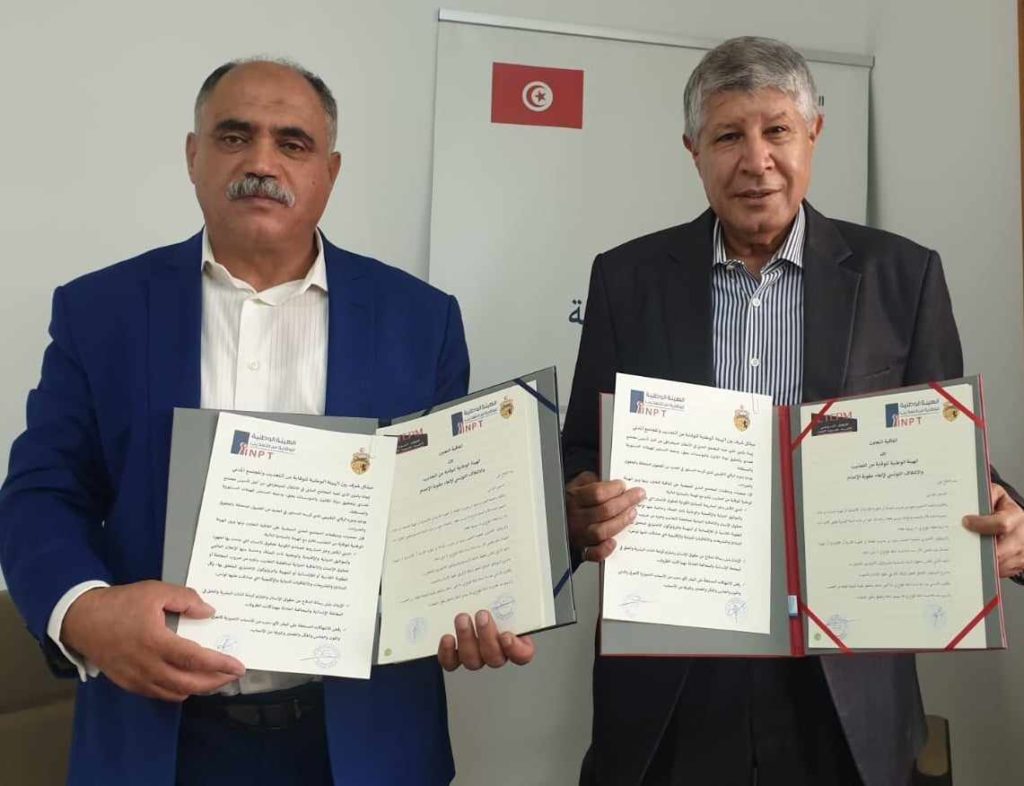
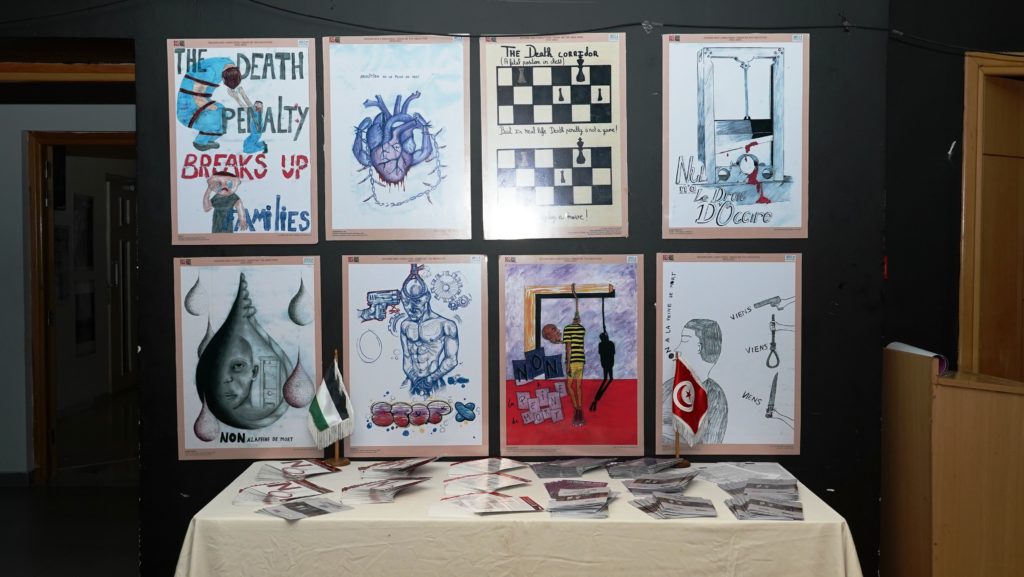
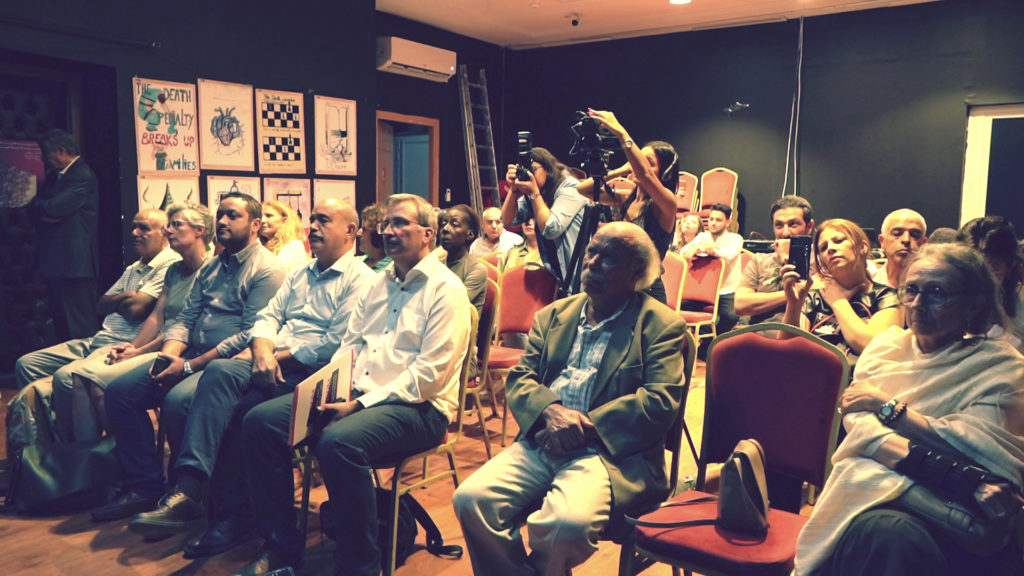
Exhibition of the Draw Me the Abolition competition posters
A commemoration ceremony for World Day was held on October 11 at the Espace Carmen in Tunis, which also inaugurated the exhibition of drawings from the 6th edition of the competition. The posters were displayed there for a week. The event featured an overview of the abolitionist struggle in Tunisia and the screening of video clips by influential Tunisian figures against the death penalty, in the presence of several Tunisian associations and the OHCHR. These video clips are part of a broader awareness campaign for abolition and will be broadcast on the CTCPM’s social media channels.
Youth and community centers mobilised
Between October 14 and 29, six different youth centers hosted debates, film screenings, and exhibitions of the poster competition to raise awareness among younger audiences through a cultural lens. Our thanks to the following locations: the Mejez el Beb Youth Center, the Cité Tadhamen Youth Complex, the Kef Youth Center, the Cité Zouhour Youth Center, the Cité sidi Hassine Youth Center, and the Cité Ibn Kholdoun Youth Center.
Lebanon
From October 7 to 10, a delegation composed of Richard Sédillot, a lawyer specialized in international law and spokesperson for ECPM, and Julia Bourbon Fernandez, ECPM’s MENA manager, was in Beirut, Lebanon, as part of a series of activities organised on the occasion of World Day Against the Death Penalty with LACR, in collaboration with the Association for Justice and Mercy (AJEM) and the Academic University for Nonviolence and Human Rights (AUNOHR).
On October 7, LACR and ECPM organized a National Conference in the morning, with the participation of members of civil society, representatives from the Ministry of Justice, OHCHR, journalists, and students. The final session of this meeting shed light on the advocacy strategies to be pursued with parliamentarians in Lebanon. In the afternoon, a Seminar for Actors in the Criminal Justice System brought together magistrates, judges, lawyers, and legal activists for collective reflections on their roles and intervention strategies.
ECPM and LACR organised two awareness-raising interventions on the death penalty in the Middle East and the world, in front of undergraduate law students at the University of Wisdom (a French-speaking group and an English-speaking group). The delegation also met with the President of the Parliament’s Human Rights Commission, Deputy Michel Moussa, and visited Roumieh Prison, where they were able to assess the detention conditions and exchange with three death row prisoners.
- Press: Nidaalwatan ; Lebanon 24
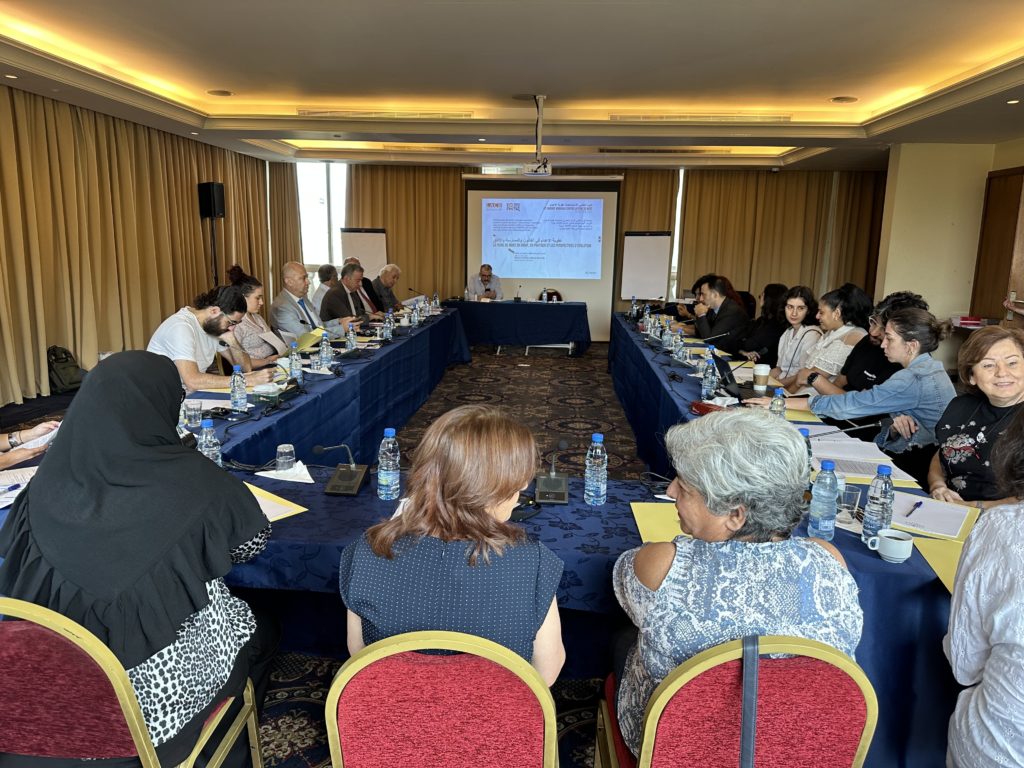
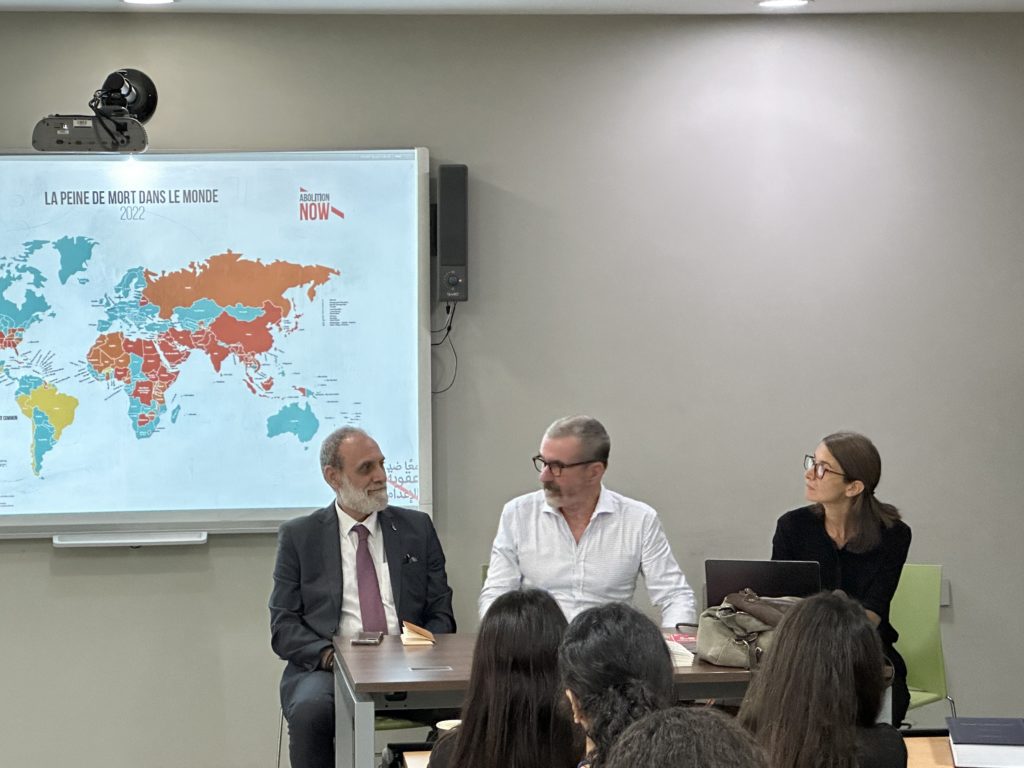
Democratic Republic of Congo
Major signs of openness in the country
Major sign of openness regarding the abolition of the death penalty in the DRC, the World Day was organised for the first time in the country. In Lubumbashi, a press conference was held in the plenary hall of the Provincial Assembly of Haut-Katanga in front of a hundred participants. After Mr Liévin Ngondji, President of Culture for Peace and Justice and the Congolese Coalition against the Death Penalty, Nicolas Perron, Director of Programs at ECPM, represented the association, followed by numerous high-level abolitionist actors such as Honorable Christelle Vuanga, a deputy in the DRC and President of the Congolese Network of Parliamentarians against the Death Penalty.
This was followed by the general assembly of the Congolese Coalition against the Death Penalty. After the conference, the debates were in full swing, allowing for in-depth reflection on the abolitionist arguments and the strategies to be put in place.
Youth engaged in the abolition
The students in the region were also invited to take part: the classes at Tutazami College in Likasi were able to attend awareness sessions on the abolition of the death penalty, and we were able to observe concrete results from our recent training led by Laure Boukabza, head of the Educating for Abolition program at ECPM. Two educational games were offered to the students, allowing them to learn how to position themselves based on the points discussed throughout the training and to contextualize the journey of a death sentence to better understand it.
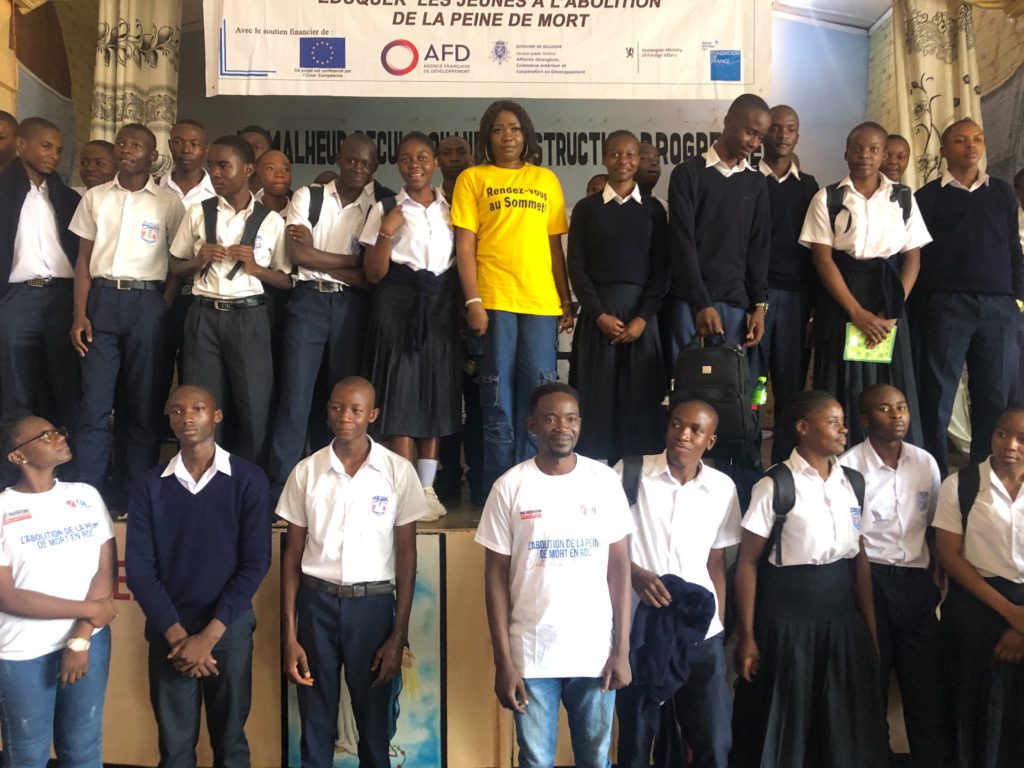
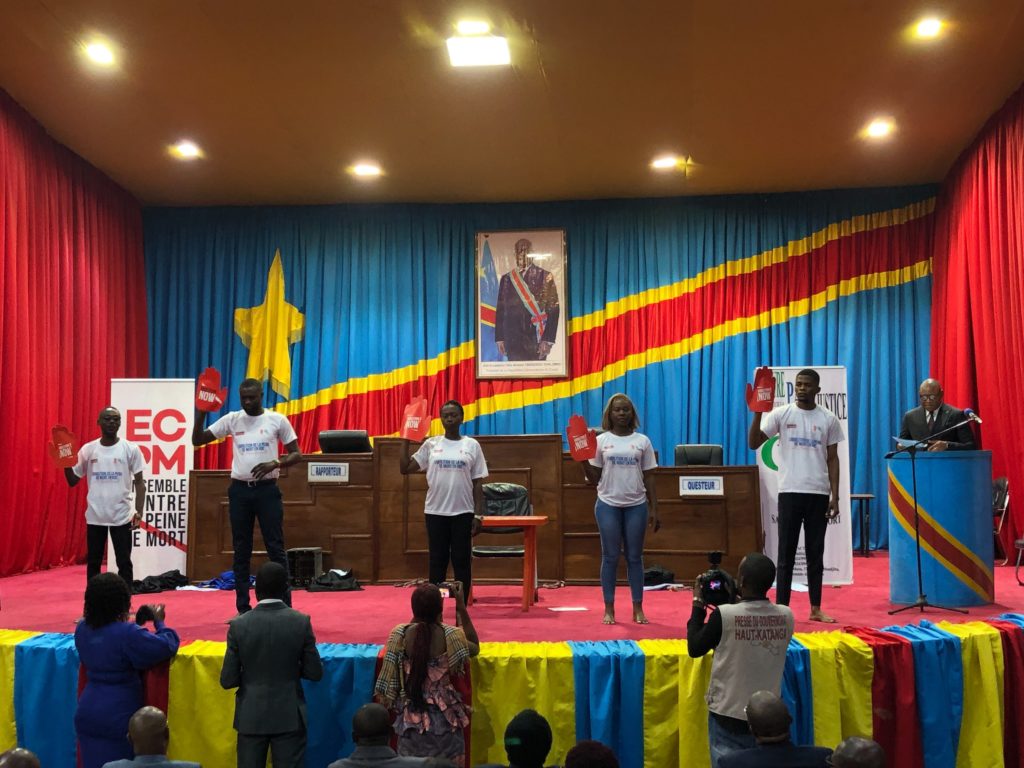
Prison visits
In the context of activities organised by the Culture for Peace and Justice (CPJ) and ECPM on the occasion of the World Day Against the Death Penalty, a multidisciplinary delegation visited the two main detention centers in the region to report on the conditions of detention for death row prisoners.
Seventeen death row prisoners were interviewed by the delegation, and they reported alarming detention conditions. Indeed, the detainees in the two visited prisons suffer from overcrowding ranging from 390 to 507%, with most of them sleeping on the floor without being able to lie down completely. Meals are strictly rationed, and the portions normally provided are reduced due to insufficient resources. Most of the death row prisoners have not been informed about the status of the death penalty in the DRC, which has observed a moratorium on executions since 2003. They are not aware of the progress of their appeal procedures and have no contact with their lawyers. As a result, some of them believe they could be executed at any moment.
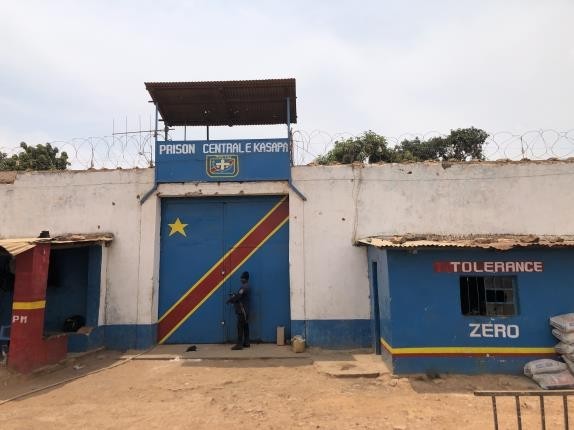
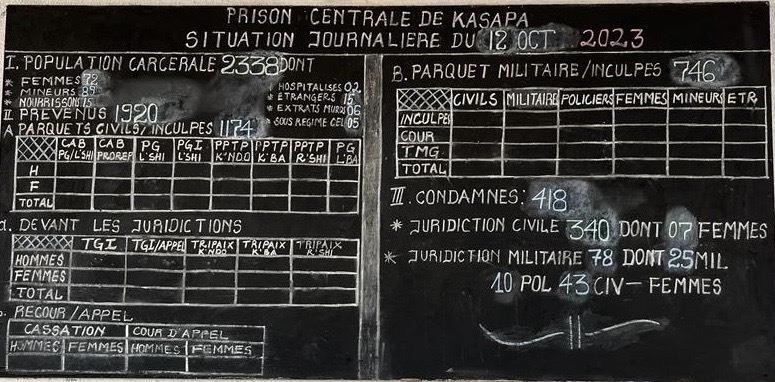
Cameroon
In Cameroon, we were able to meet with the delegation of the European Union in Yaoundé, along with our partner Droits et Paix, as part of a diplomatic meeting to prepare for the Universal Periodic Review, which will take place in November 2023. The aim was to increase the number of recommendations made by states on the death penalty in Cameroon and to diversify the content by targeting, in particular, the improvement of detention conditions, the formalization of the moratorium, and the possibility of monitoring and visiting detention facilities. An alternative report produced by ECPM and Droits et Paix was presented to advocate for this and to enrich allied diplomacy and the Cameroonian government with knowledge about the situation of the death penalty in the country.
Minister of State, Minister of Justice, and Keeper of the Seals Laurent Esso also insisted to meet with our team during this visit, demonstrating a particular interest in the topic.
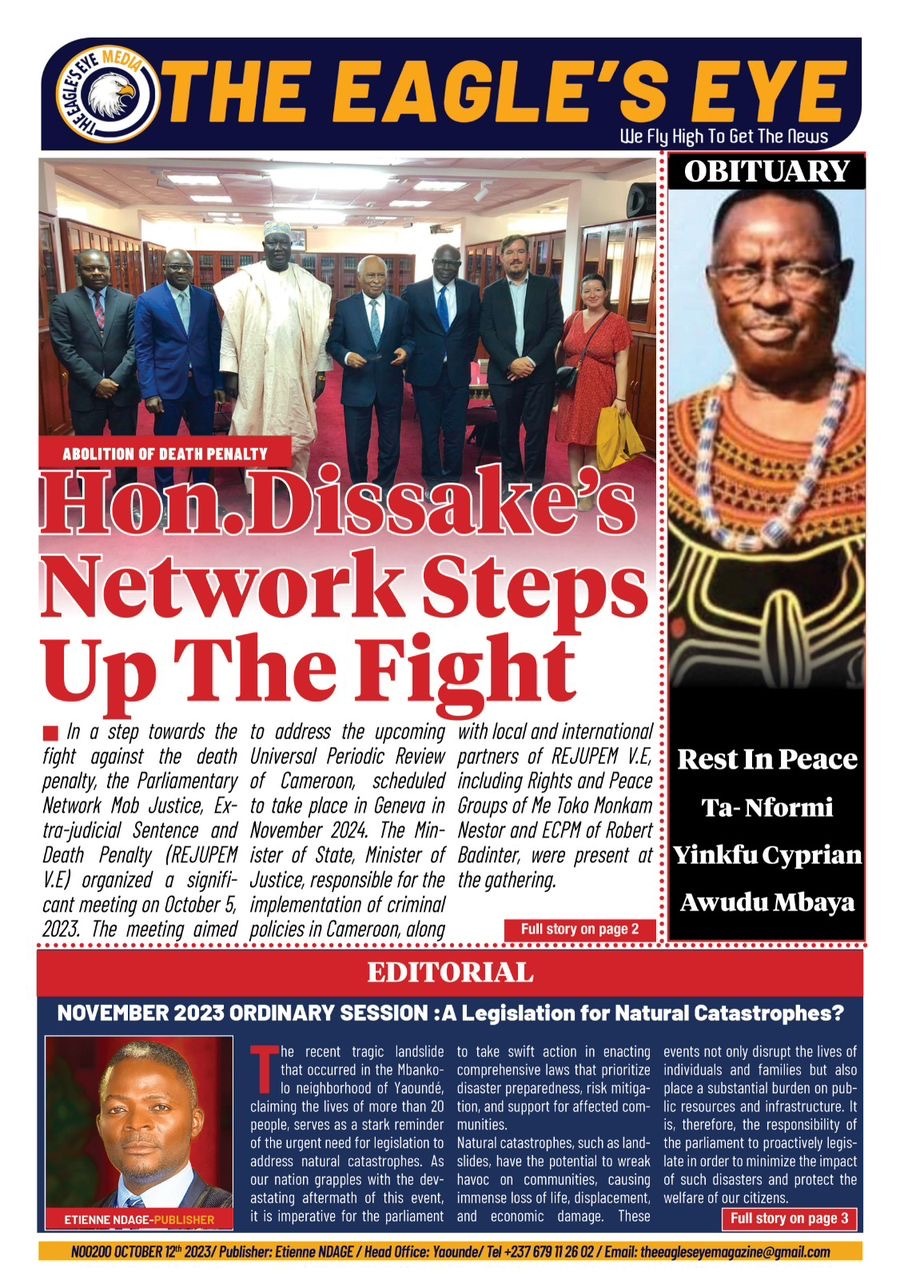
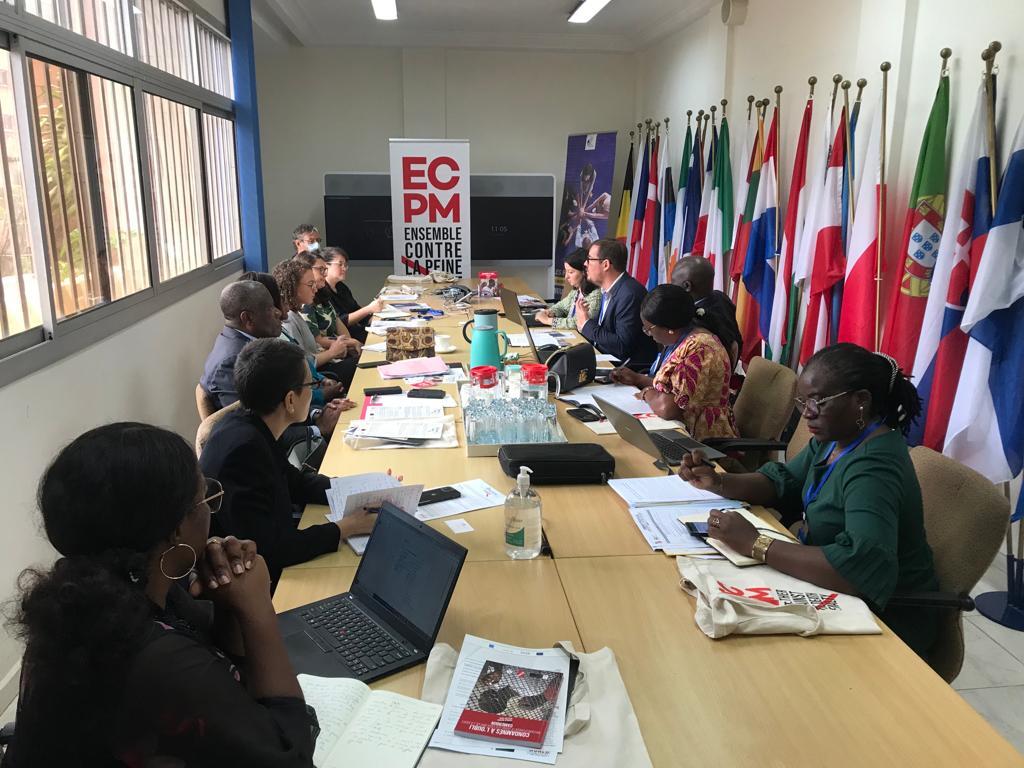
Indonesia
Marie-Lina Perez, Head of the Africa-Asia desk, Raphaël Chenuil-Hazan, director of ECPM, and Emilie Fournier, Communications Officer, joined our partners KontraS in Jakarta to celebrate the 21st World Day Against the Death Penalty in the context of a new penal code that will enter into force in 2026. The new law provides for death sentences to be commuted to life imprisonment or 20 years’ imprisonment after 10 years of good conduct in prison. However, since the law does not explicitly define “good conduct,” the implementation of this provision remains highly subjective. It is therefore up to NGOs to establish a clear roadmap for judges to pronounce or not pronounce death sentences and sentence commutations with more transparency and objectivity, with the aim of reducing the number of death sentences and the alarming rate of corruption in the Indonesian penal system.
The group engaged in various high-level meetings and notably met with the new delegation of Komnas-Ham, the National Human Rights Institute, to present the history of ECPM and KontraS in the region, propose collaboration between NHRI and civil society, and discuss action strategies. Topics such as the recent vote session for a universal moratorium on the death penalty, during which Indonesia abstained from voting, and the drafting of an official declaration for the abolition of the death penalty were also discussed.
Members of ECPM also met with the new French ambassador to Indonesia, Mr. Fabien Penone, and the new French consul in Indonesia, Mrs. Elsa Rochier. This was followed by an opportunity to visit Serge Atlaoui, who has been transferred to a prison in Jakarta, making visits easier. He extends his greetings to all his supporters in France and around the world and continues to fight for his release. As a French citizen detained and sentenced to death for almost 18 years, he is not forgotten.
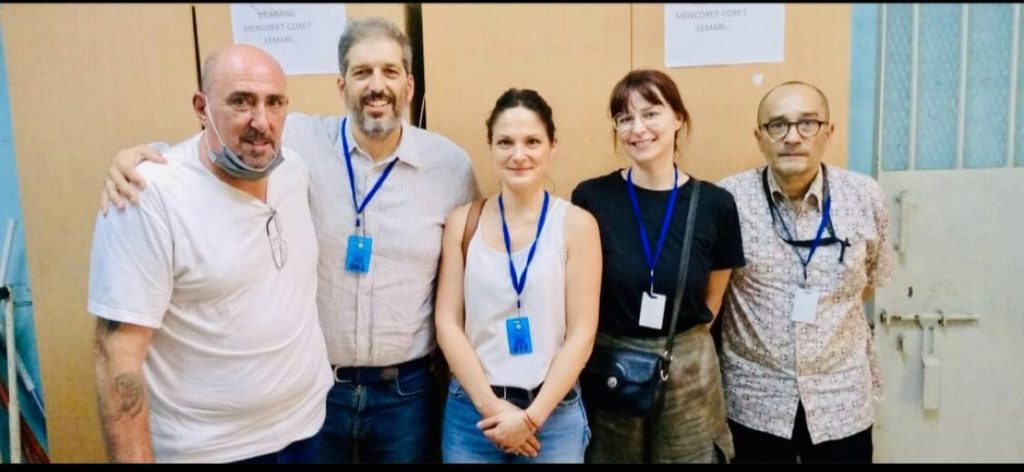
An full afternoon was dedicated to meeting the member organizations of Jati, the Indonesian coalition against the death penalty, allowing for discussions on the context, skills exchange, and particularly focusing on Indonesia’s dichotomous stance regarding its citizens sentenced to death abroad and migrants sentenced to death in the country. Joint actions are being considered for the drafting of a roadmap related to the implementation of the new penal code.
Finally, a conference dedicated to the celebration of the World Day Against the Death Penalty, organised by KontraS and ECPM, was held in Jakarta, with the presence of various stakeholders. Yusman Telaumbanua, sentenced to death as a minor following forced confessions while not fully understanding Bahasa Indonesia, spoke about his condemnation that violated all international legal texts. Todung Mulya Lubis, a renowned lawyer in Indonesia, emphasized the collateral damage of the death penalty suffered by the families of the condemned, and Mariana Amiruddin, a member of Komnas Perempuan, the national commission on violence against women, highlighted the prevalent gender discrimination in the condemnation procedures.
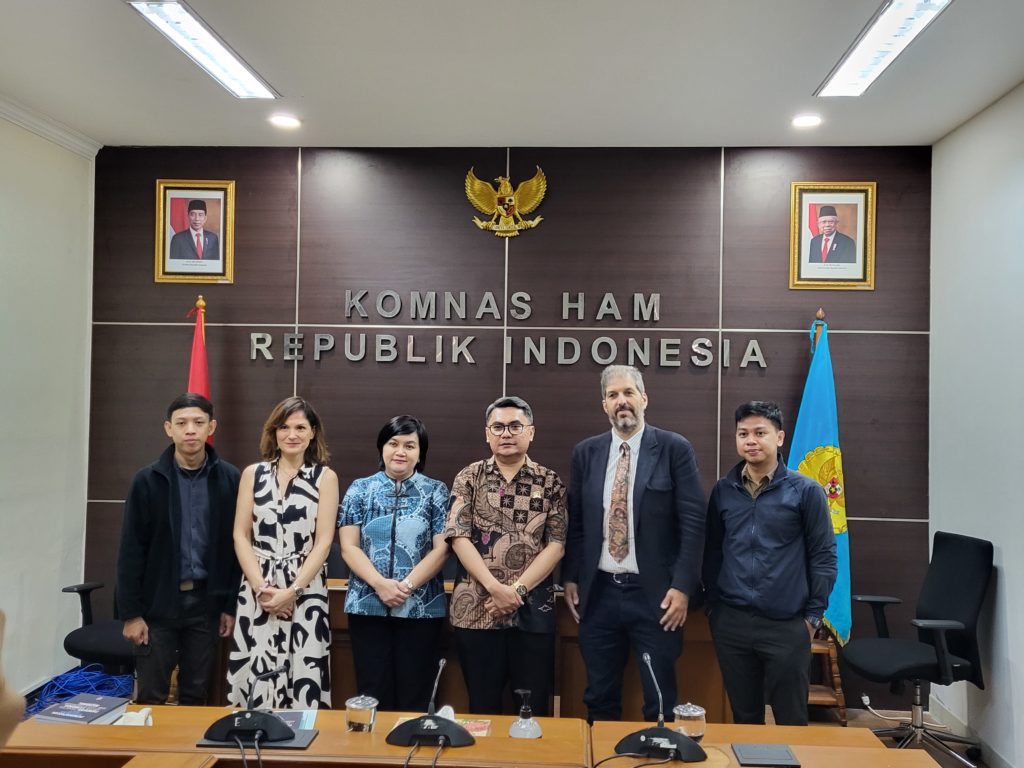
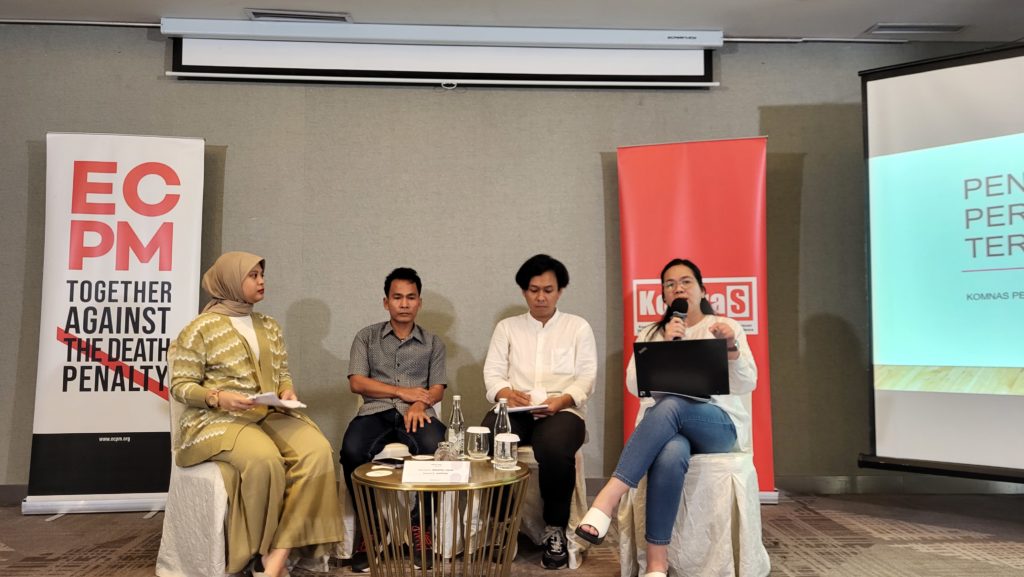
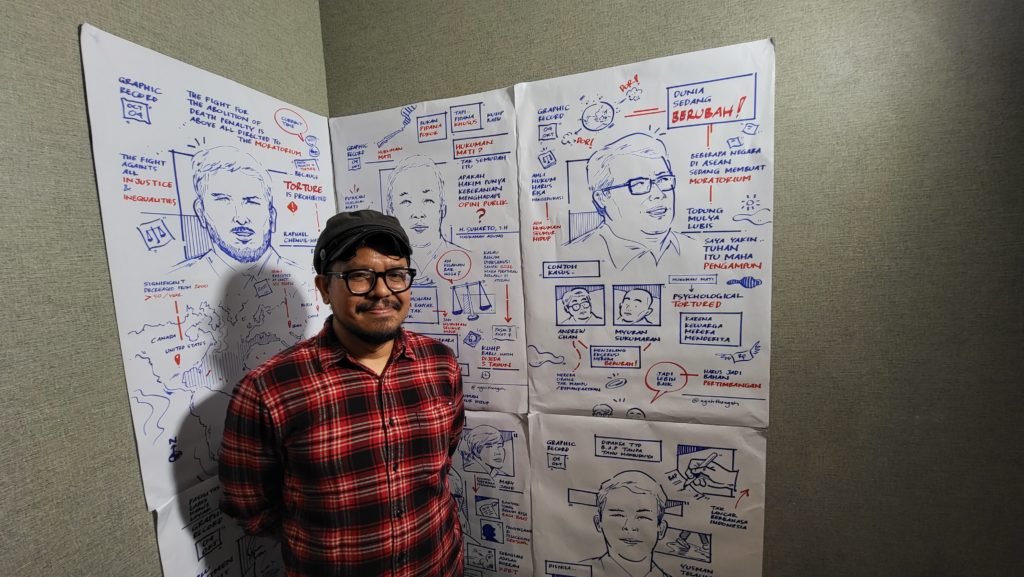
ECPM’s visit to Indonesia was also an opportunity to support Fatia Maulidiyanti and Haris Azhar in Indonesia during their trial, two activists who are members of KontraS and have faced repression in their freedom of expression. They have been subjected to a criminal defamation trial initiated by the Indonesian Minister of Maritime Affairs and Investment Coordination, Luhut Binsar Pandjaitan, based on a video in which they denounce the commercial activities of Indonesian military officials in gold mines and potential exploitation projects in the Blok Wabu region. They face a potential prison sentence of 1 to 4 years.
Malaysia
Since 2022, ADPAN has been leading the creation of a network of families of death row prisoners, “Pertubuhan Kebajikan Keluarga Kasih,” aimed at connecting, supporting, and enhancing the capacities of the relatives of death row prisoners through legal assistance, support for their organization, and workshops providing training on appeals or clemency procedures. ADPAN has also involved the Family Network in direct advocacy actions with parliamentarians, particularly in the lead-up to the vote on the mandatory abolition of the death penalty, a historic step taken in April 2023. ADPAN is currently supporting the affected families in the process of reviewing and revising death sentences following the legislative developments achieved this year.
This year, ADPAN wanted to commemorate the World Day Against the Death Penalty and recent victories with the network of families of death row prisoners. The World Day marked the official establishment of the network, which now has 120 members from different states (representing almost 10% of death row inmates in Malaysia) and solidified the commitment of the Network as a new abolitionist force in Malaysia during a commemorative dinner for the World Day, in the presence of families, partner NGOs, and representatives from several allied embassies.
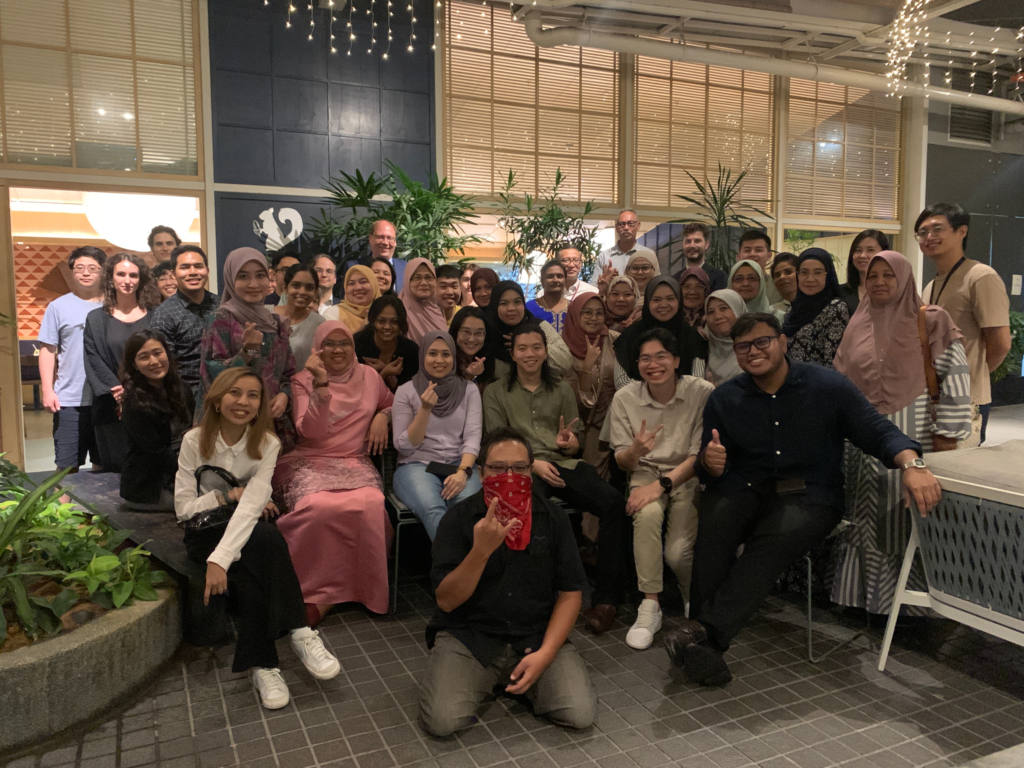
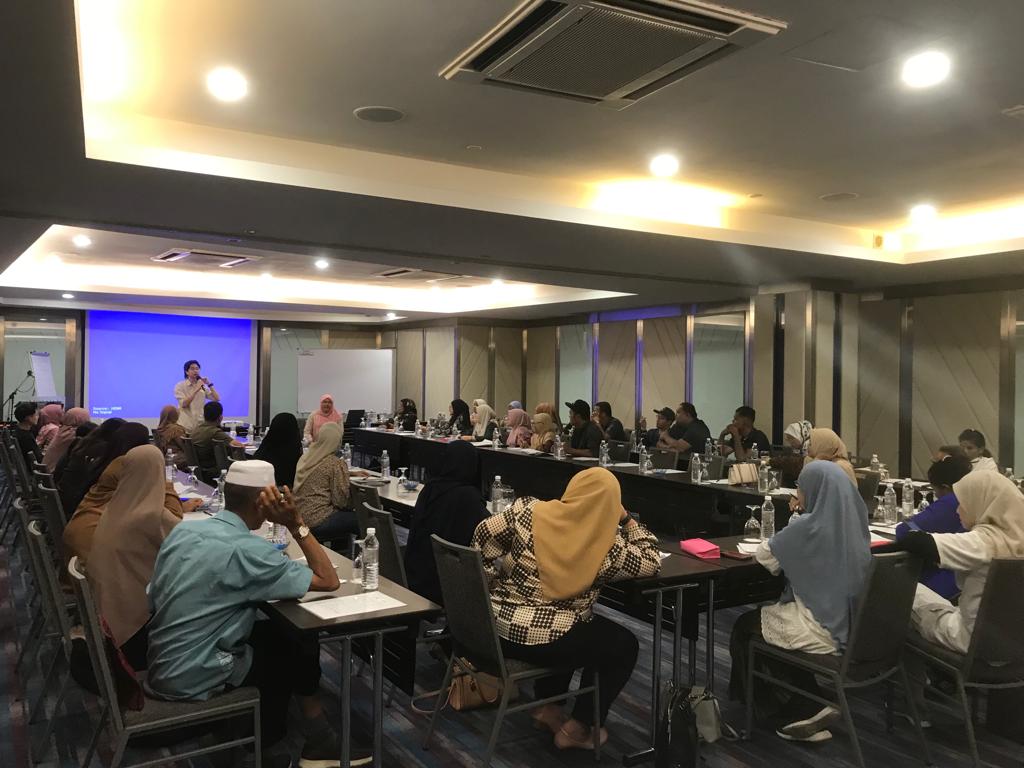
Several activities have materialized the collaboration and support for the Family Network, including training on writing clemency petitions and a discussion between representatives of SUHAKAM (the National Human Rights Institution of Malaysia) and families of death row prisoners, allowing them to report, through a formal complaint filing procedure, the difficult detention conditions and mistreatment endured by their loved ones.
United States
Mr Edmond-Claude Fréty, a ECPM board member, attended an event organised by the French Embassy in Washington, entitled “C’est la vie? Raising awareness about the death penalty through art.” The evening featured a discussion among Ndume Olatushani, an artist drawing inspiration from 20 harrowing years spent on death row for a crime he did not commit, Martin Luther King III, and journalist Elizabeth Bruenig, a Pulitzer Prize finalist from The Atlantic magazine. The exhibition “Final Words” by Marc Asnin and the works of Ndume Olatushani were on display, and musical performances were given by the winners of the Robert Badinter Prize for Innovation: Albert Marques and Keith Lamar, currently on death row in Ohio.
You can watch the entire event via streaming by clicking here!
